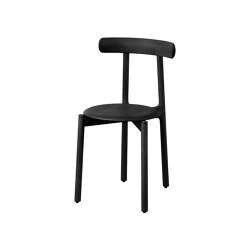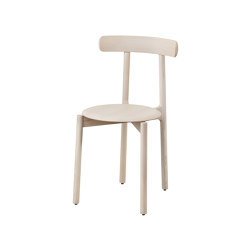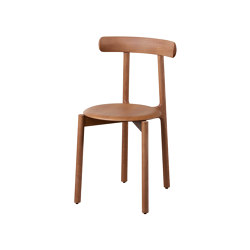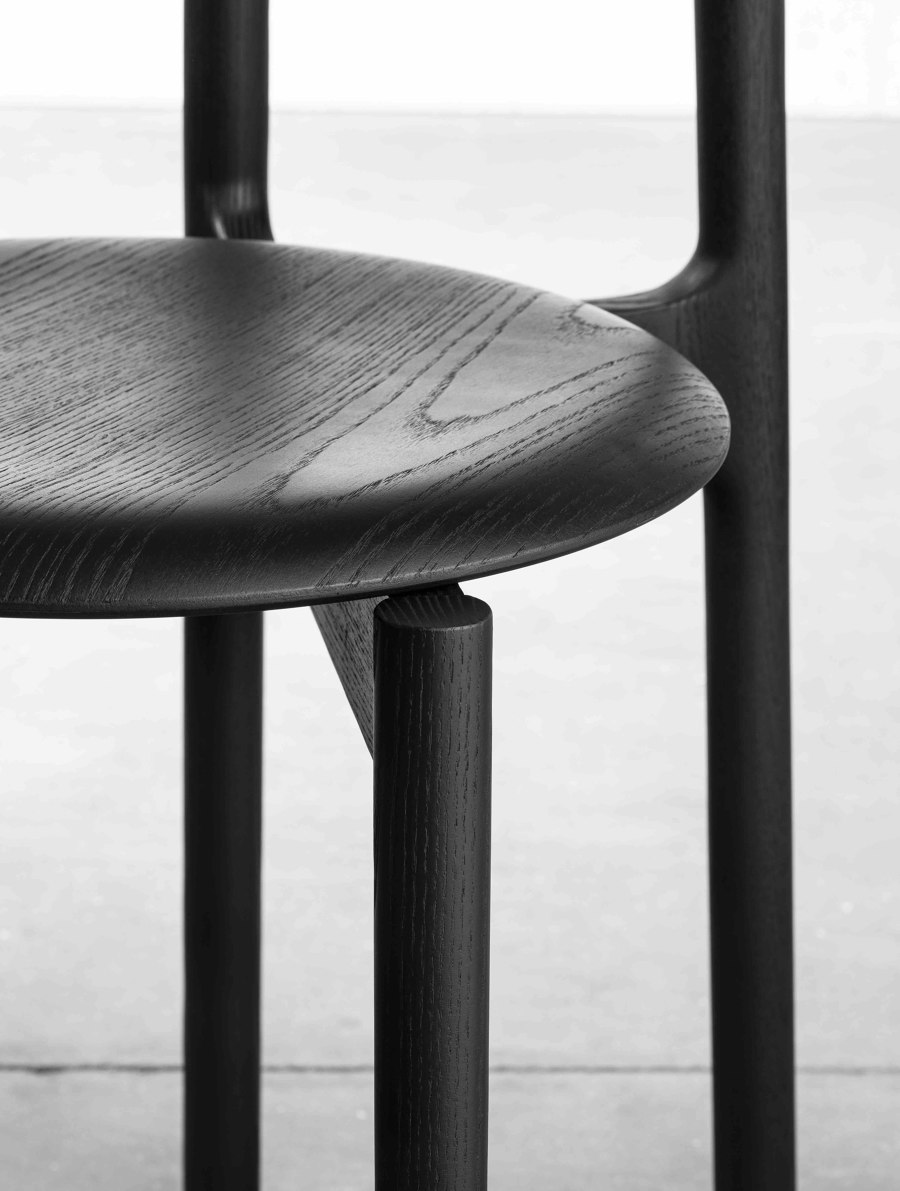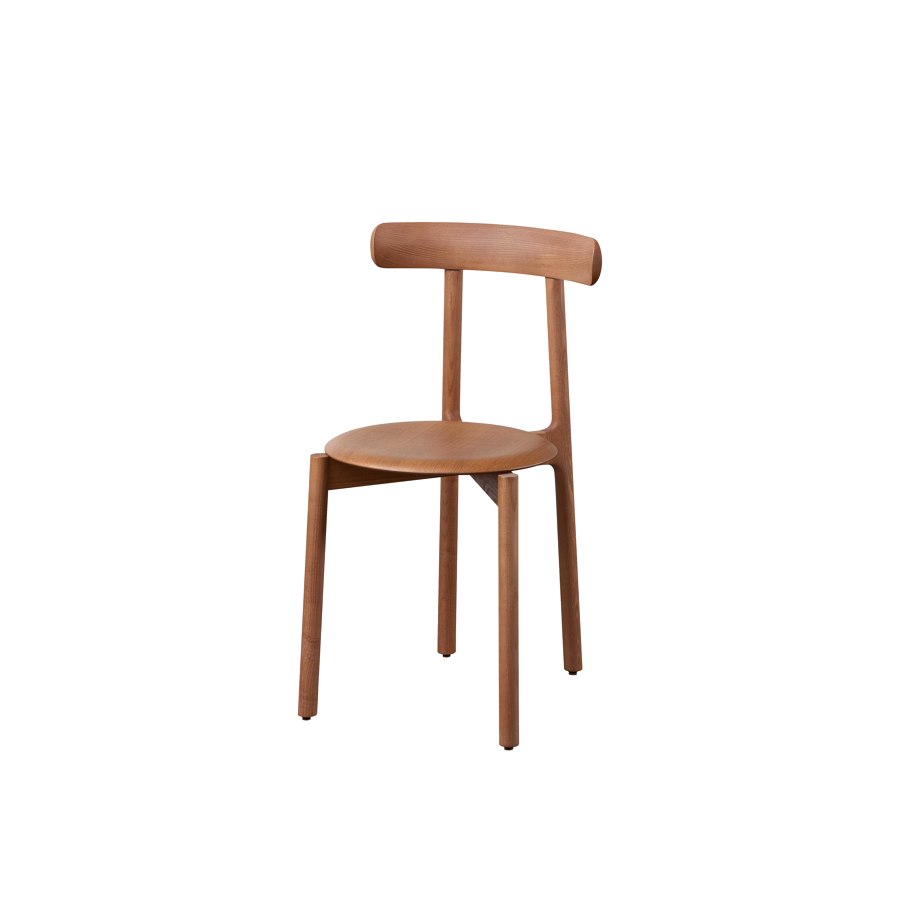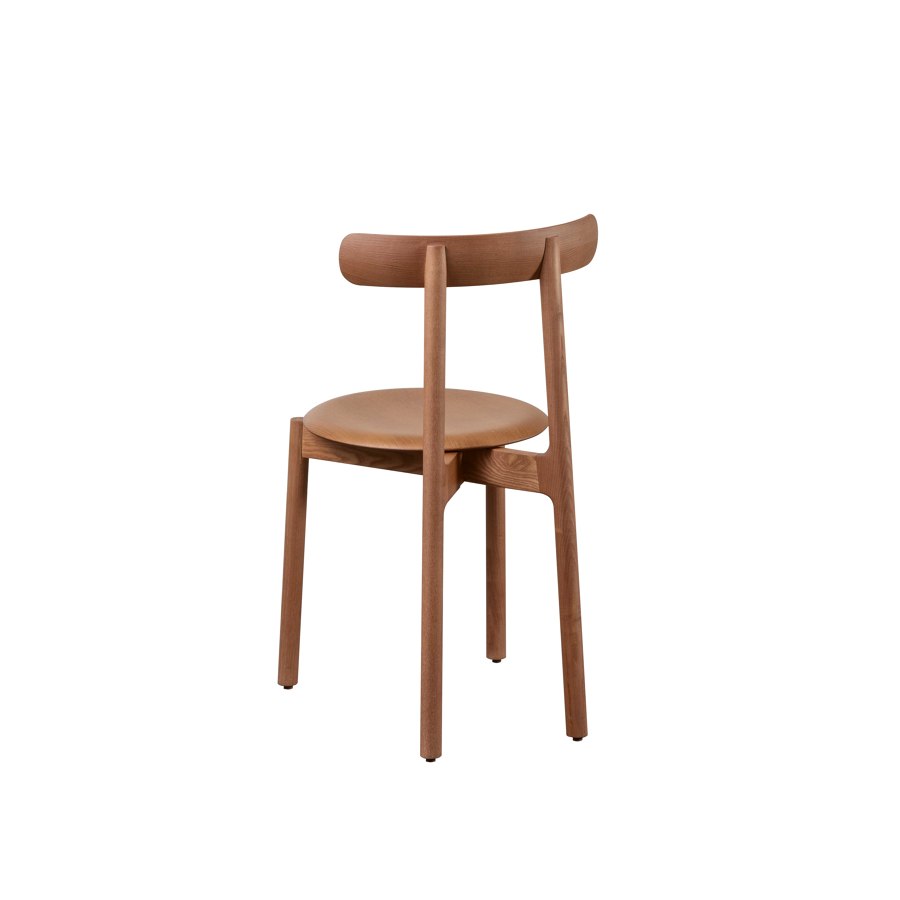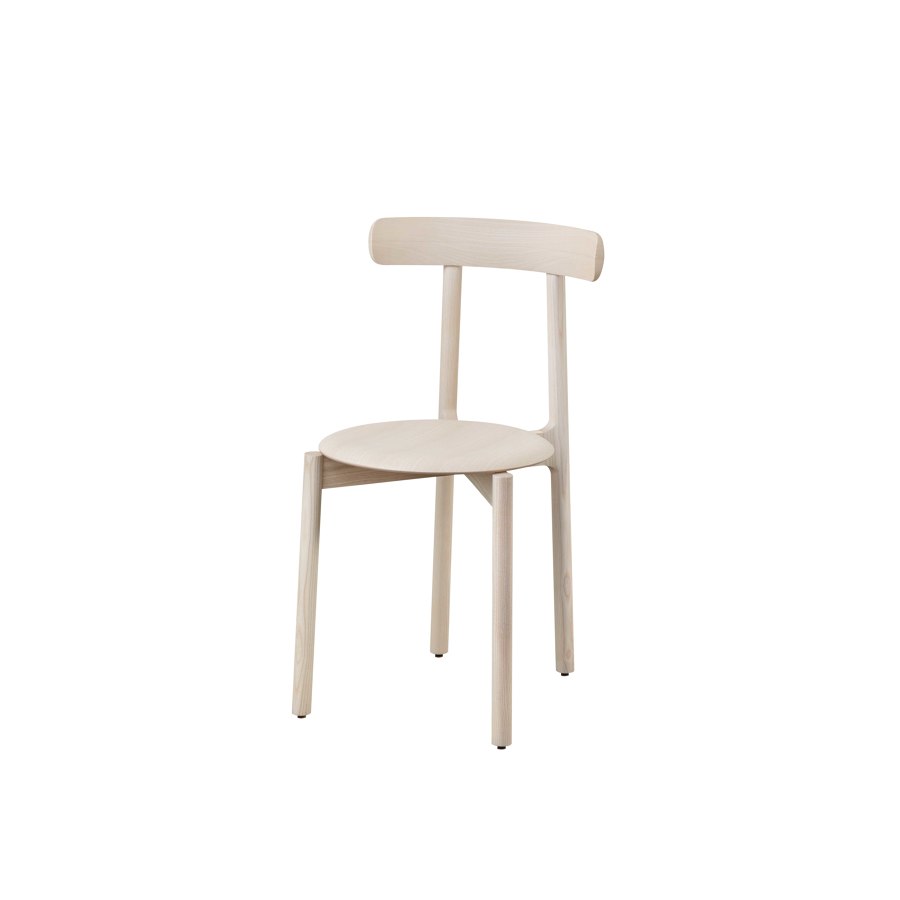Strong and pure: Miniforms’ Bice chair is all ears
Storia del Marchio di Dominic Lutyens
Meolo, Italia
25.10.22
With its organic, nature-inspired lines and contemporary graphics, the Bice chair from Italian furniture specialists Miniforms fits perfectly in a variety of spaces, where its characterful design packs a serious punch.
The new Bice chair, designed by Italian studio e-ggs for Miniforms, harmoniously marries straight lines and graceful curves
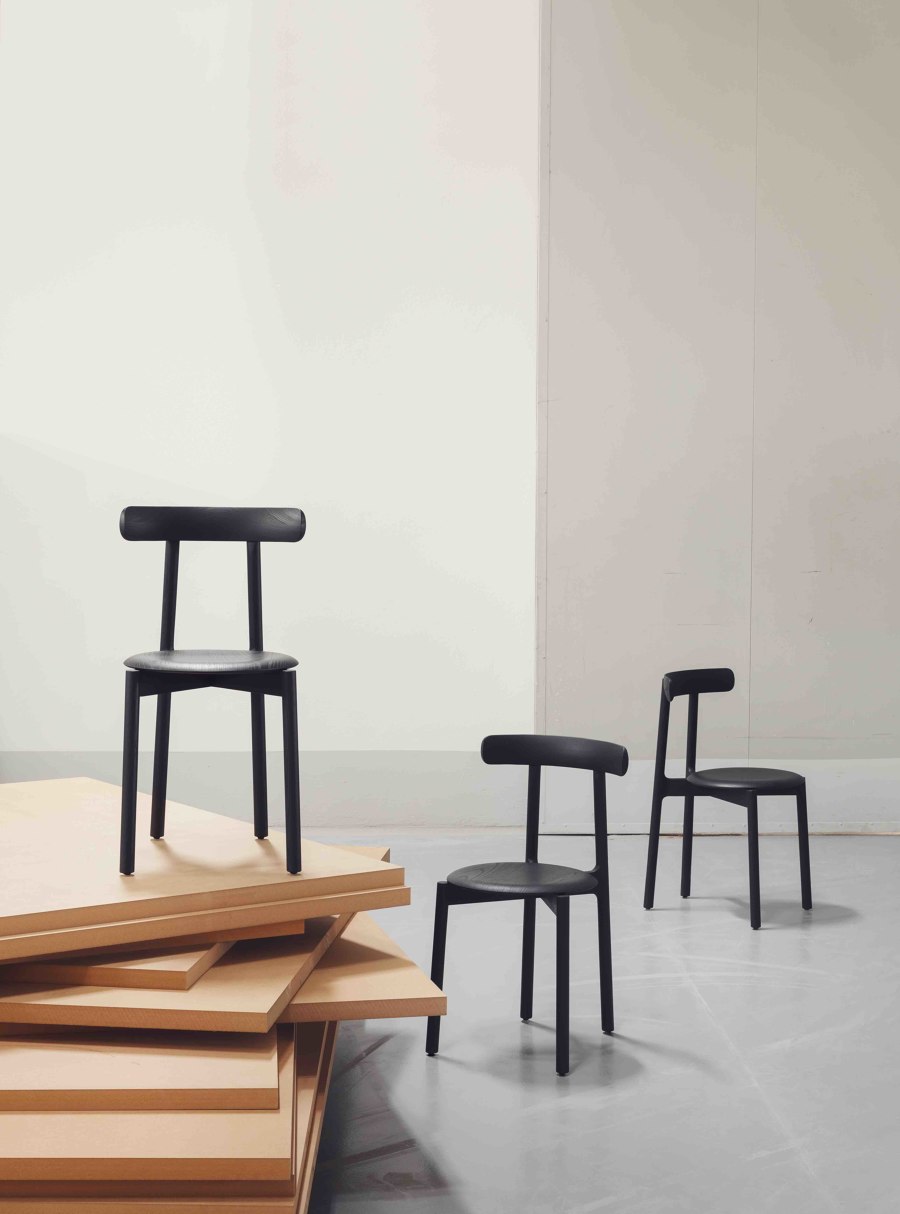
The new Bice chair, designed by Italian studio e-ggs for Miniforms, harmoniously marries straight lines and graceful curves
×Pared-down, utilitarian and aesthetically pleasing chairs are always an asset for interior designers. Their neutrality allows them to harmonise with all styles of interior. When slender and stackable, too, they provide practical, space-saving seating.
History shows that functional, lightweight chairs can be very characterful. Italian designer Gio Ponti’s Superleggera chair of 1957 – intended to be portable and take up little space – was a hit in the modern but modestly sized new apartments that sprung up all over postwar Europe. Yet Superleggera took inspiration from traditional chairs hand-crafted in Italy’s coastal town, Chiavari. Danish architect Arne Jacobsen’s Series 7: No 3107 chair of 1955 is another example of a classic design combining simplicity and a distinctive character. It encapsulated the zeitgeist: its user-friendly, streamlined moulded plywood seat echoed other hourglass shapes of the 1950s, such as the wasp-waisted fashions pioneered by Christian Dior.
Stackable, playful and available in different wood tones, the versatile Bice is suited to both residential and commercial settings
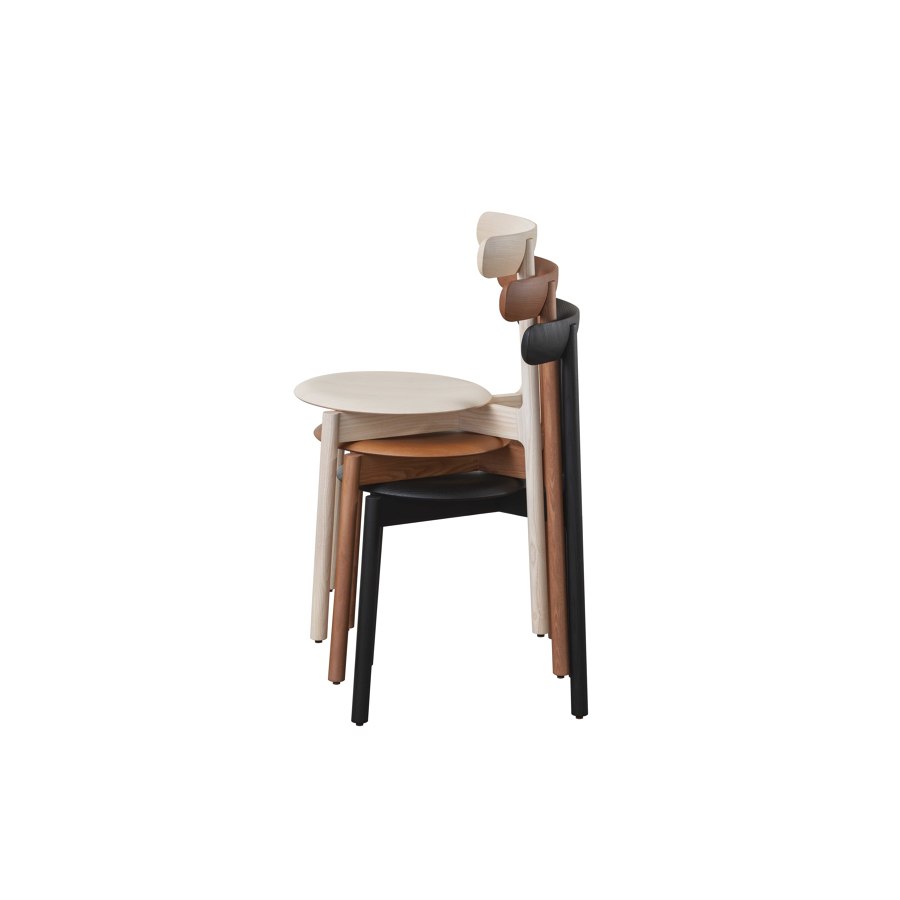
Stackable, playful and available in different wood tones, the versatile Bice is suited to both residential and commercial settings
×A good example of this phenomenon now is the new, solid wood Bice chair, made by Italian furniture company Miniforms, which is understated yet has a strong character. The practical, slimline, stackable seat was designed by multidisciplinary Italian studio e-ggs, whose main goal is to create 'simple, intuitive, timeless products'.
'Nature inspired us with soft shapes harmonised with taut lines'
A key characteristic of Bice is its juxtaposition of straight lines and graceful curves. 'The seat is a soft circle made of plywood, moulded with a double curvature that contrasts with the clearly visible X structure of the legs,' explain the team at e-ggs. The main inspiration behind Bice was nature, they say: 'Nature inspired us with soft shapes harmonised with taut lines. The various parts come together in a continuous and fluid line, never a hard one, like thin but sturdy branches of a tree that alternate with light, soft leaves.' The visible woodgrain on Bice emphasises this profound connection with nature.
Top: Organic surfaces and discreet details harmonised in an apparent simplicity. Above: The curved base of the backrest fuses with the seat, forming a unified whole
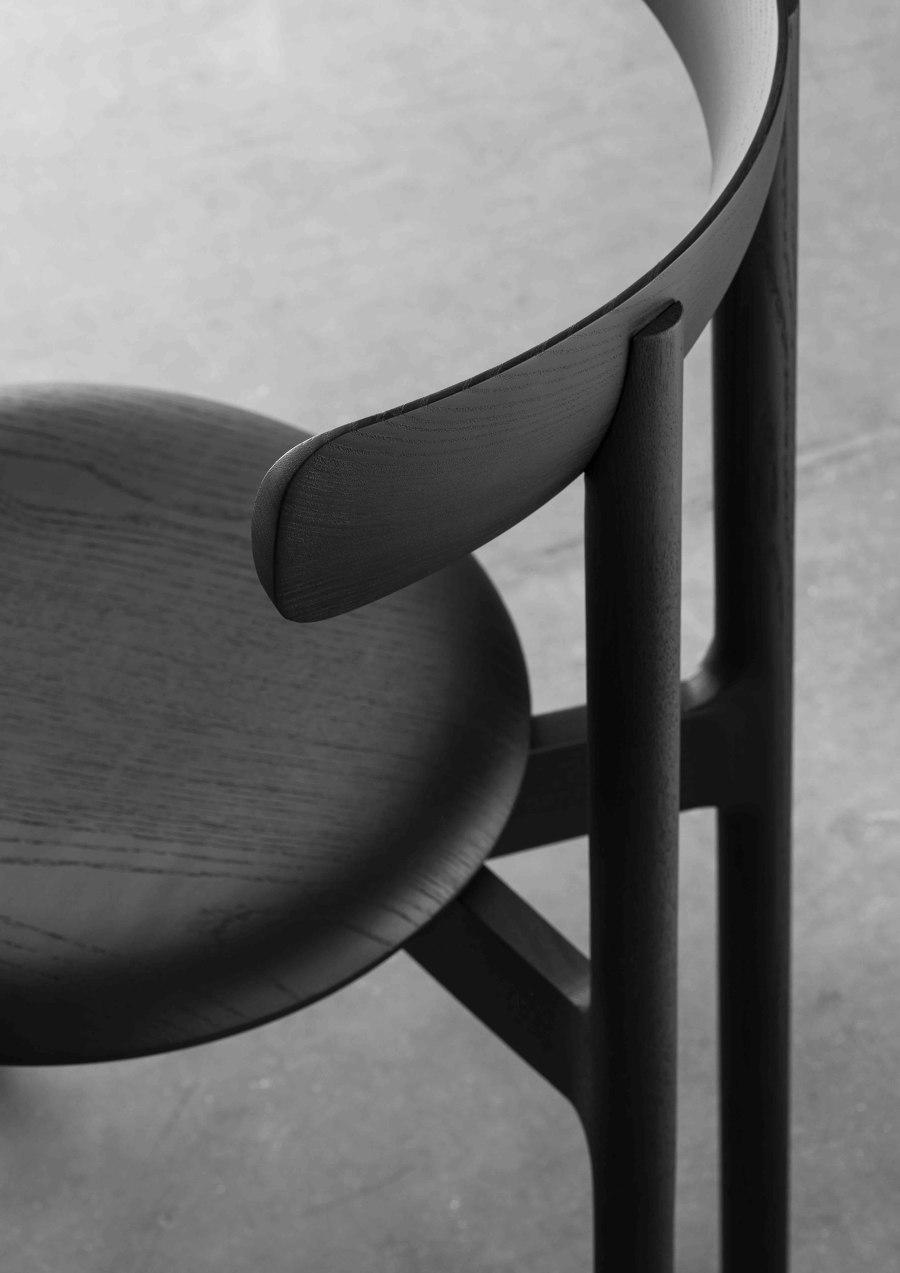
Top: Organic surfaces and discreet details harmonised in an apparent simplicity. Above: The curved base of the backrest fuses with the seat, forming a unified whole
×The chair’s linear components recall the strong forms of bare branches, giving it a 'graphic' quality, as the e-ggs team notes, yet the straight-lined legs and organic, curvaceous backrest are harmoniously fused, creating an overall impression of purity and elegance. The point at which the vertical elements of the backrest meet the supportive legs is gently curved, emphasising this satisfying fusion.
Perhaps Bice’s subliminal reference to nature chimes with the needs of our time – a desire to reconnect with the outdoors and, simultaneously, to emotionally rebalance through a yearning for familiar and enveloping shapes.
Top and above: Bice in its warm, stained walnut tone has a mid-century feel
Its curved, comfortable backrest embraces the sitter’s back ergonomically – and complements the circular form of the soft-looking cushion-like seat. Miniforms compares the backrest to 'flap ears', thereby highlighting its whimsical, playful quality, which gives it more character still.
'The chair faintly recalls the archetypal shapes of bistro chairs'
Enhancing Bice’s individuality is its availability in four tones: stained black; natural ash; stained walnut and stained oak. Each tone gives the timber a different feel – the mid-tone walnut shade has a mid-century flavour (think 1950s rosewood furniture), while the black hue connotes the Thonet bentwood chairs invented in the 1890s that became a staple of elegant Viennese coffee shops and bistros throughout Europe. 'The chair faintly recalls the archetypal shapes of bistro chairs,' the e-ggs team points out.
Top: Bice, in natural ash, is suitable for minimal interiors. Above: In strongly contrasting stained black, Bice recalls classic, 20th-century bistro chairs – one inspiration behind it
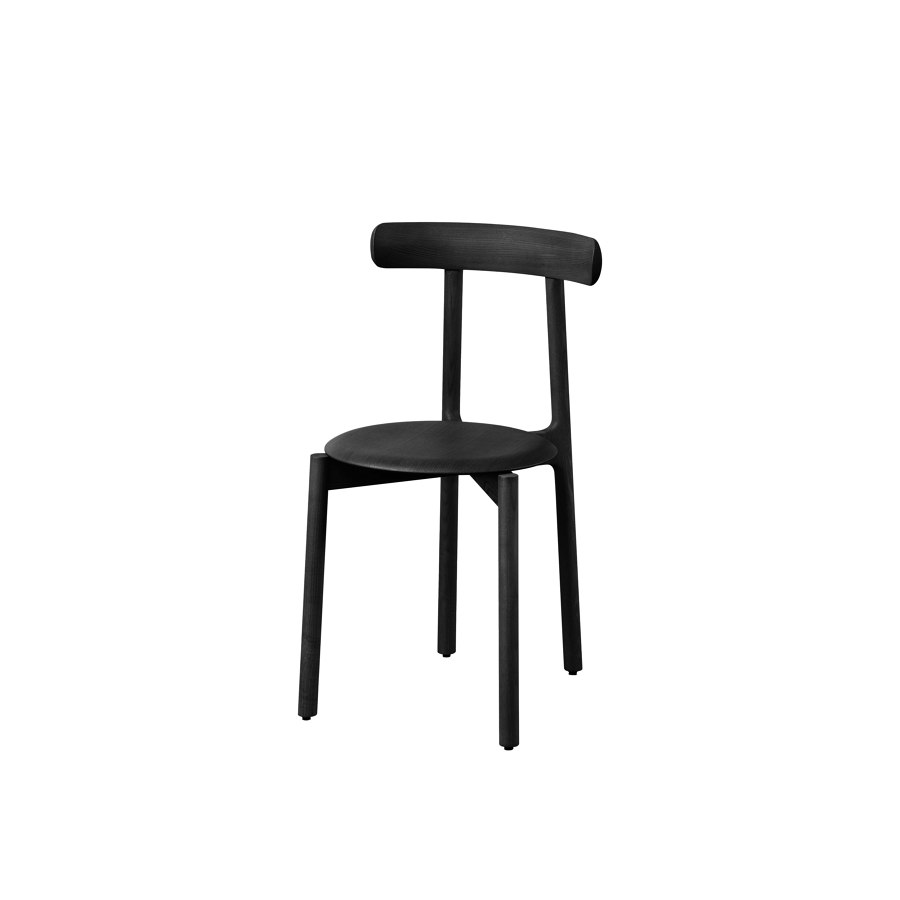
Top: Bice, in natural ash, is suitable for minimal interiors. Above: In strongly contrasting stained black, Bice recalls classic, 20th-century bistro chairs – one inspiration behind it
×Bice creates an overall impression of purity – the result of sound, traditional craftsmanship and a considered, contemporary design satisfyingly marrying curves and straight lines. For architects and interior designers, it appeals for being space-saving, stackable and good-looking, rendering it suitable for a multitude of domestic and commercial environments. It’s easy to visualise Bice having a strong presence in any context – from homes and hotel lobbies to restaurants and cafés.
© Architonic
Head to the Architonic Magazine for more insights on the latest products, trends and practices in architecture and design.


